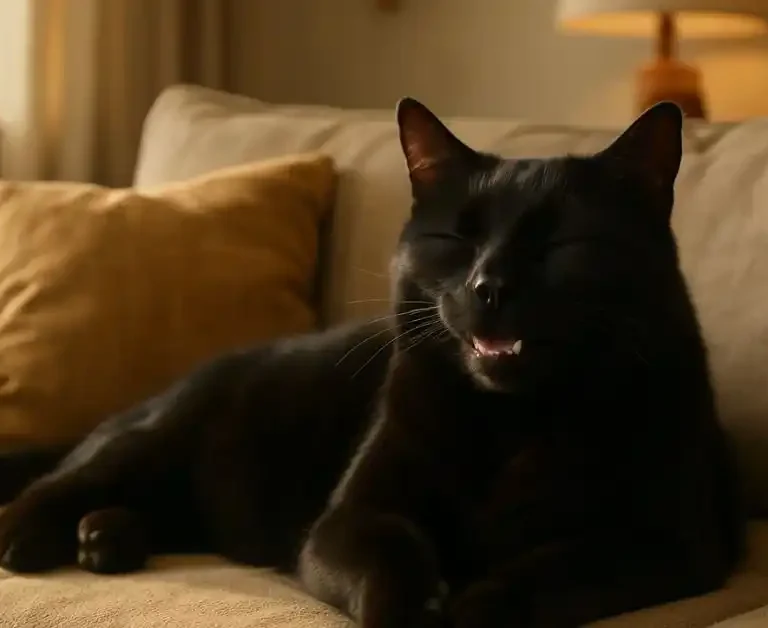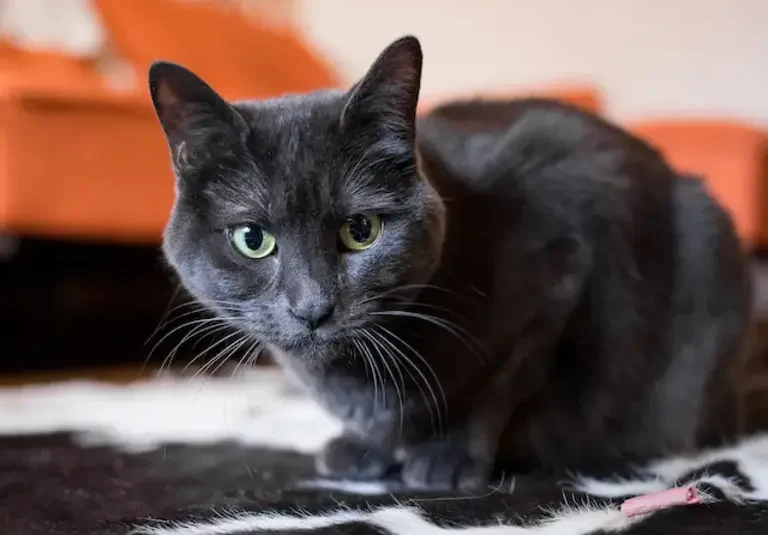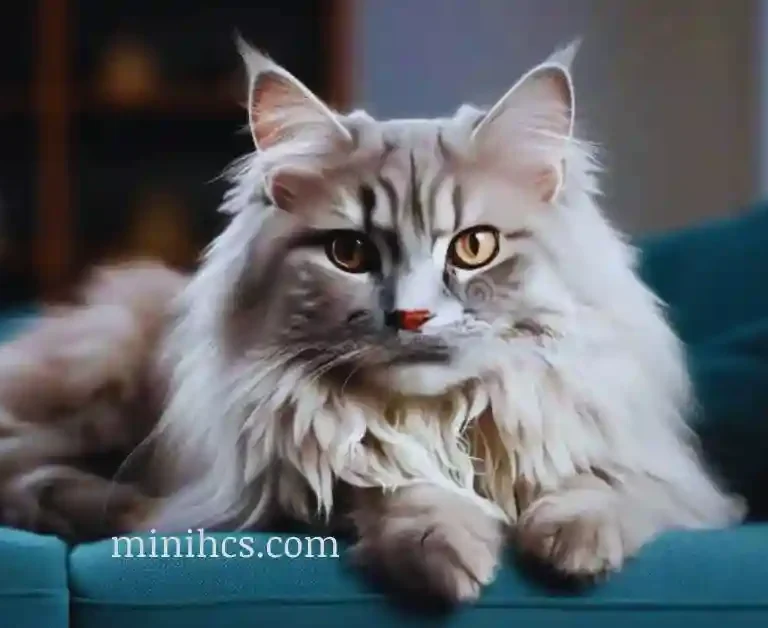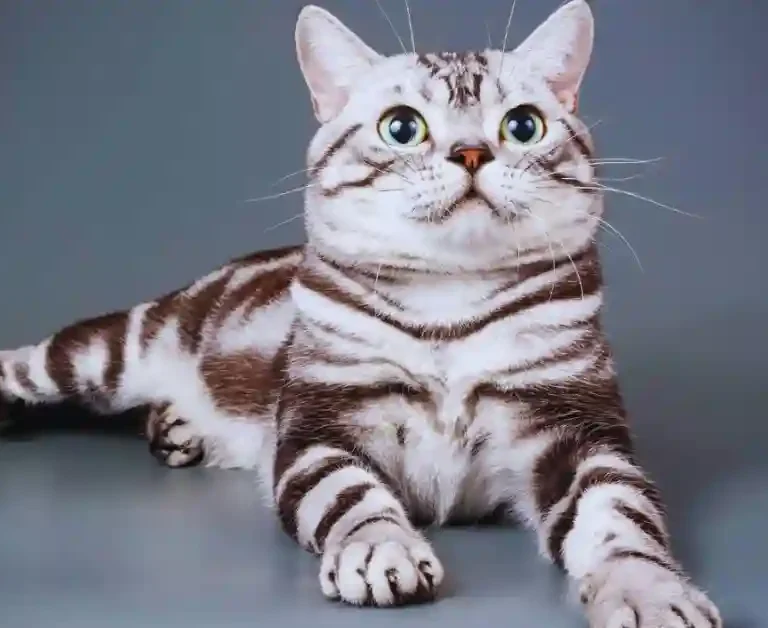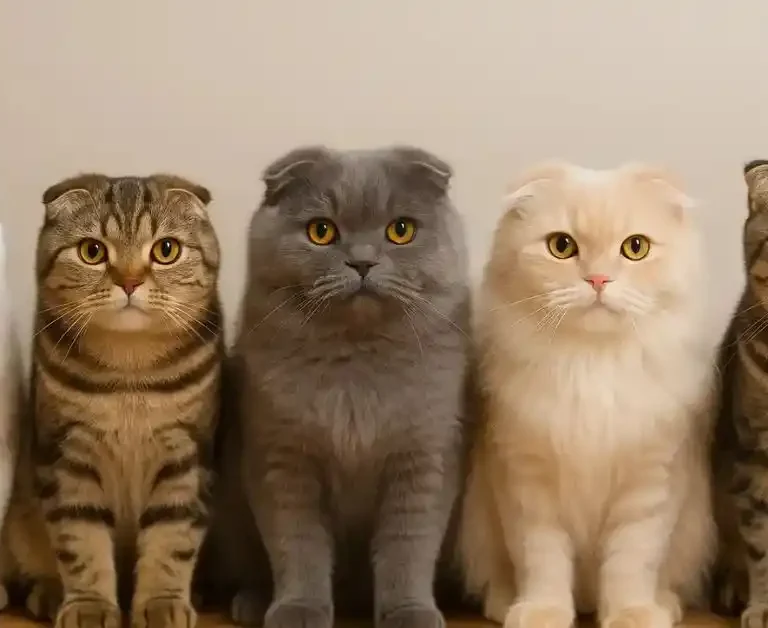Maine Coon Cat: The Gentle Giant of the Feline World
The Maine Coon Cat, often called the “gentle giant,” is a beloved cat breed known for its impressive size, luxurious fur, and friendly disposition. Originating from Maine, USA, these magnificent cats are cherished worldwide for their distinctive looks and charming personalities.
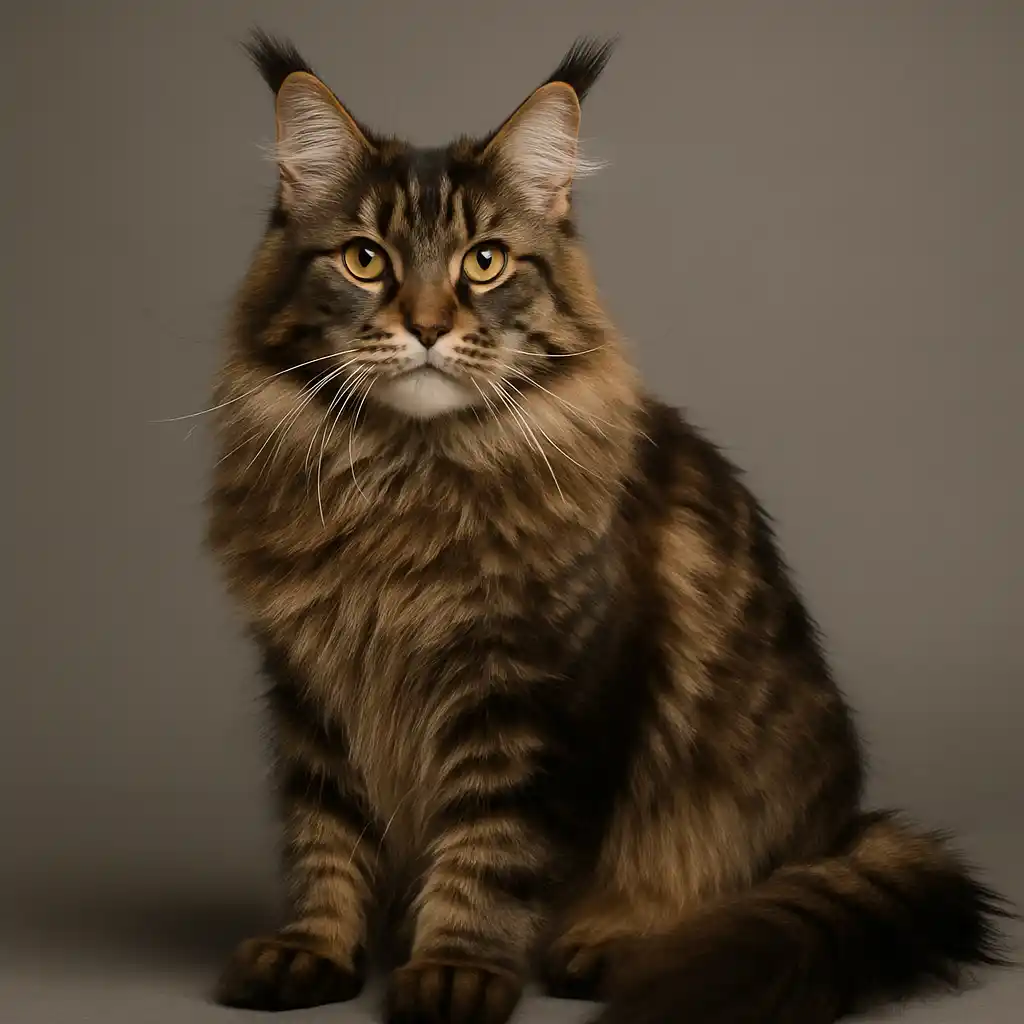
A Glimpse into History
The exact origins of the Maine Coon are debated, but they are believed to have evolved naturally in New England, adapting to harsh winters. Their thick, water-repellent fur and bushy tails are perfect for cold climates.
Recognized in the late 19th century, they were popular farm cats due to their mousing skills.
After a dip in popularity, dedicated breeders revived the breed in the 1950s, leading to its current widespread recognition.
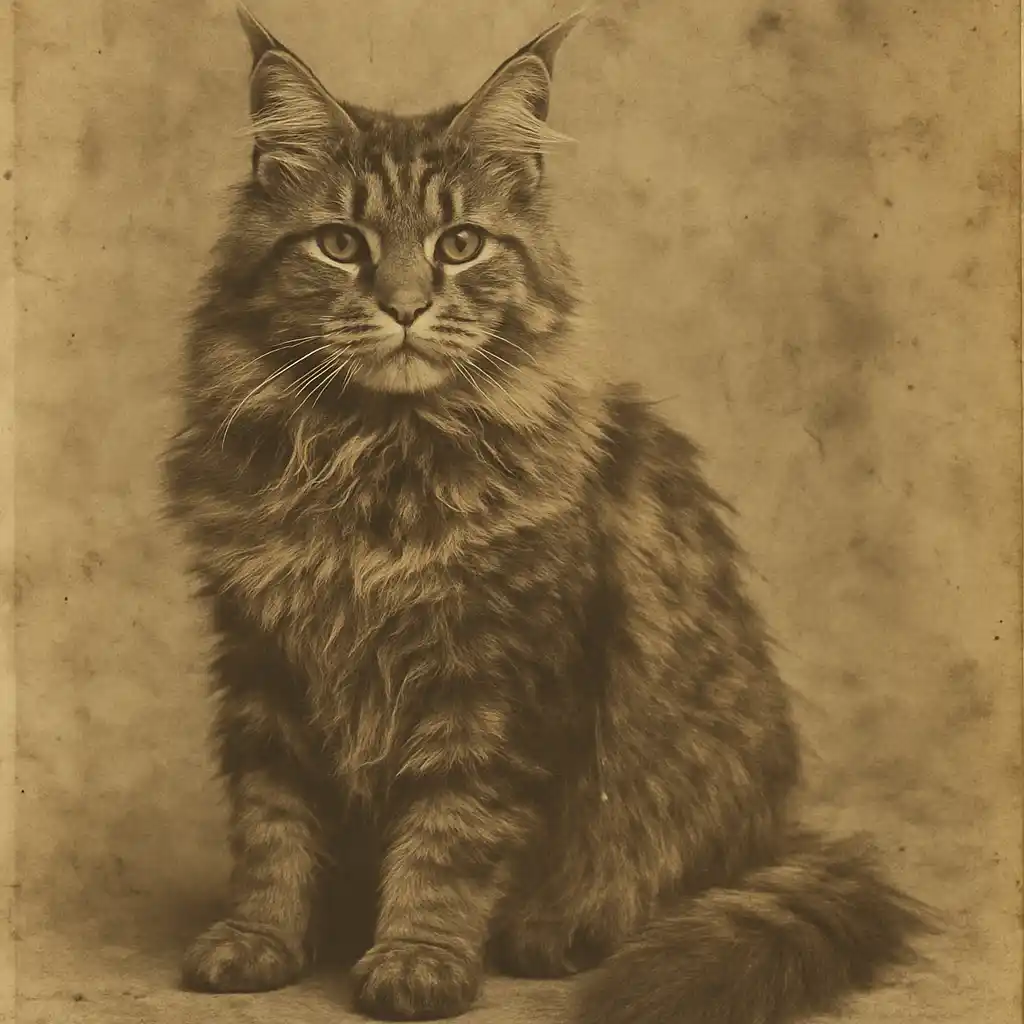
Majestic Physical Traits
Maine Coons are among the largest domestic cat breeds. Males typically weigh 13-18 pounds, with females slightly smaller. They boast a long, shaggy, water-repellent coat, a distinctive neck ruff, and a long, bushy tail. Their large, tufted ears often have lynx-like tips, and their big, round, tufted paws act like natural snowshoes. They come in a wide variety of colors and patterns.
Personality: A Heart of Gold
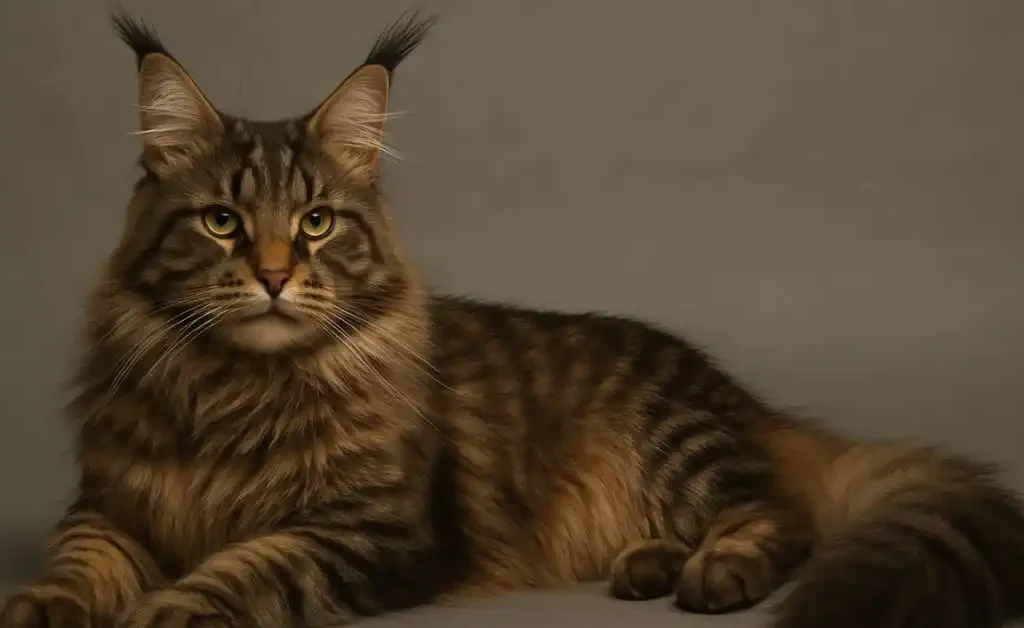
Known for their sweet and docile nature, Maine Coons are truly “gentle giants.” They are affectionate, sociable, and form strong bonds with their families. Highly intelligent and curious, they enjoy interactive play and can even be trained. Their unique vocalizations, including chirps and trills, add to their charm. They are excellent family pets, getting along well with children and other animals due to their patient and tolerant nature.
Care and Health
Despite their long fur, Maine Coons are relatively low-maintenance groomers, requiring regular brushing a few times a week. They are unique in their fascination with water, making occasional baths easier. Regular nail trimming, dental care, and ear cleaning are also important. A high-quality, protein-rich diet supports their large size and active lifestyle.
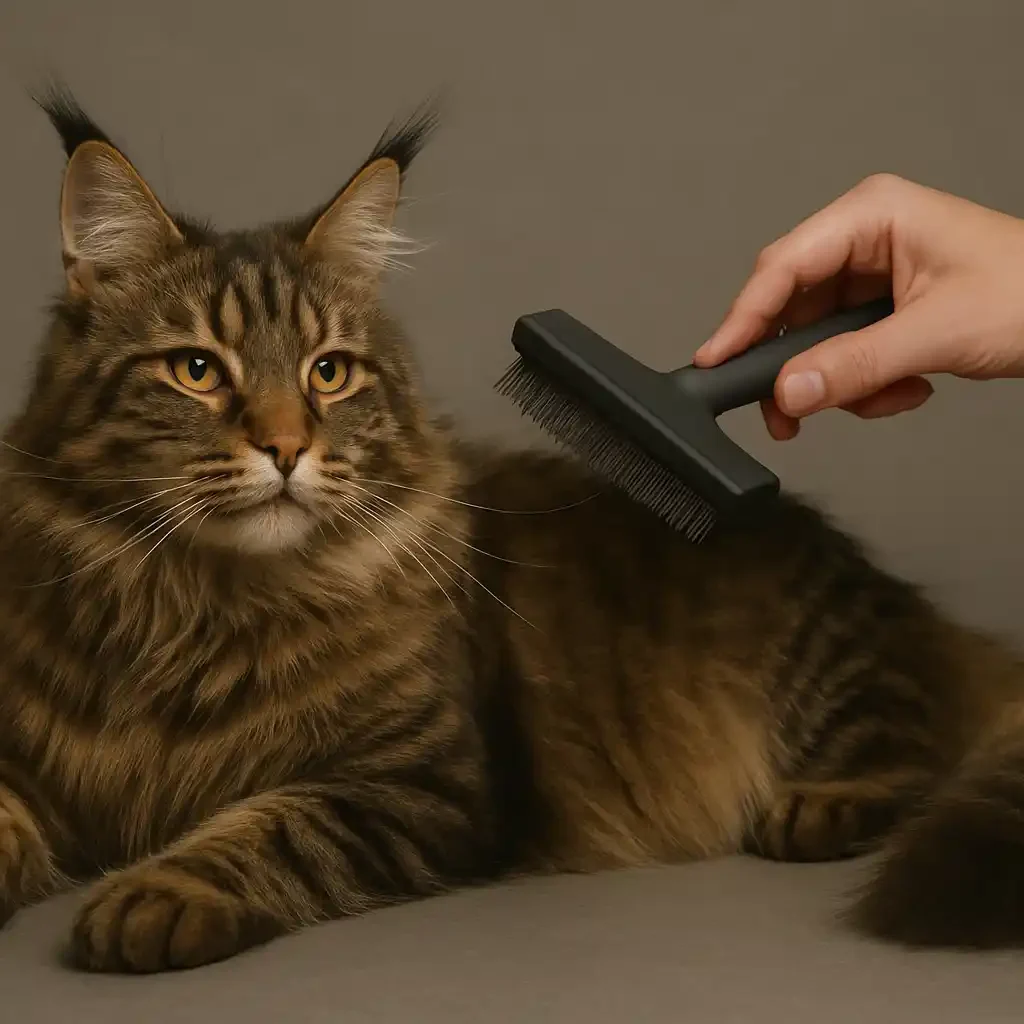
While generally healthy, Maine Coons can be predisposed to certain genetic conditions like Hypertrophic Cardiomyopathy (HCM) and Hip Dysplasia. Responsible breeding and regular veterinary check-ups are crucial for their well-being.
Is a Maine Coon Right for You?
If you seek a large, affectionate, intelligent, and playful feline companion that integrates well into family life, a Maine Coon is an excellent choice. Their loyal nature, adaptability, and entertaining antics make them one of the most beloved cat breeds globally.
Maine Coon Cat Playful Behaviour
Maine Coon cats are renowned for their playful behavior, which is one of their most endearing traits. Unlike many other cat breeds that tend to mellow out as they age, Maine Coons maintain a kitten-like enthusiasm well into adulthood. This playful nature is characterized by their love for interactive play and their curiosity.
They enjoy chasing after toys, stalking, pouncing, and even engaging in games of “catch” or fetch, which is a behavior more commonly associated with dogs. Their love for water is another example of their playful attitude, as they may play with running taps, puddles, or even try to “catch” water droplets from a spray bottle.
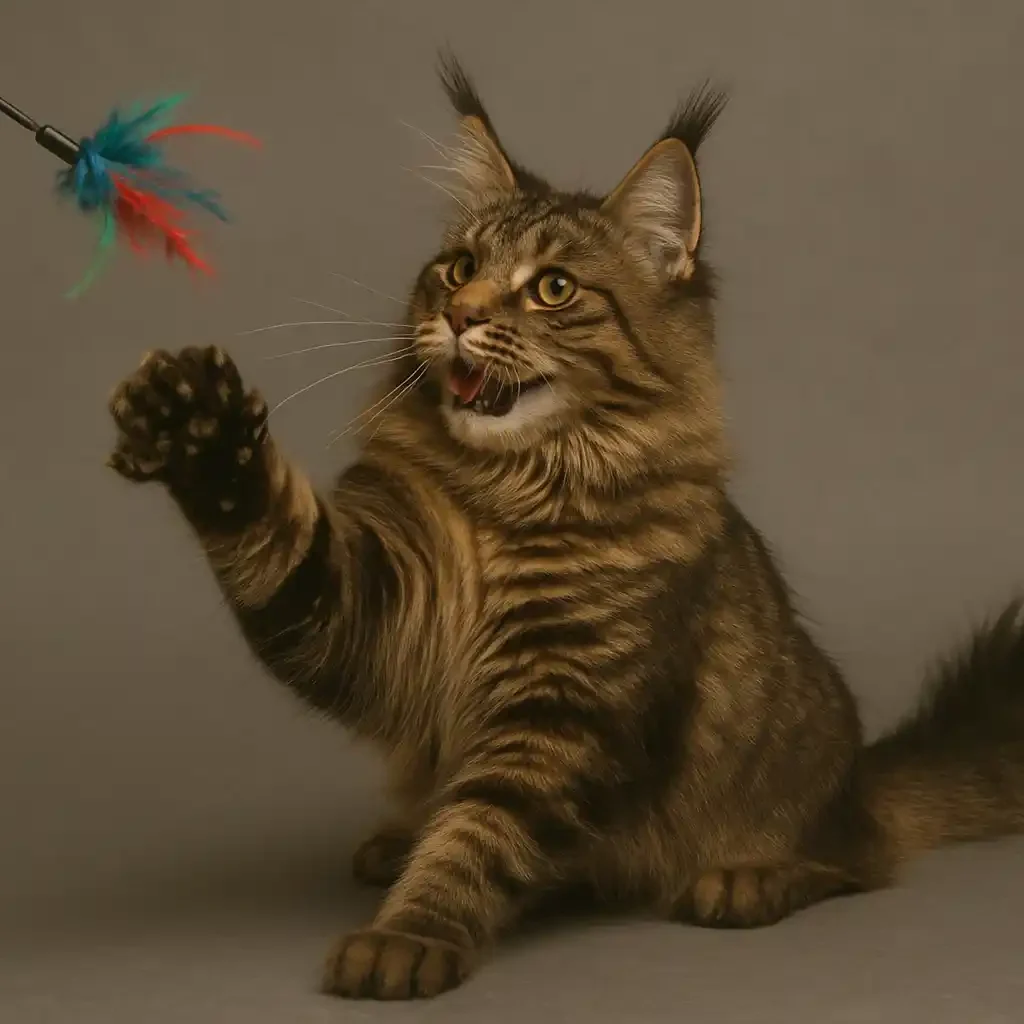
What sets them apart from many other breeds is their intelligence and problem-solving abilities. Maine Coons can figure out complex puzzle toys, and they enjoy the mental challenge these toys provide.
Their natural inquisitiveness also means they will often explore their environment thoroughly, climbing to high places, investigating new objects, and observing their surroundings with great interest.
In addition to playing with toys, Maine Coons are very social and will often engage in play with their human companions. They are not shy about initiating playtime, and they seek out their owners to join in fun activities.
Their play can be interactive and dynamic, involving both physical exercise and mental stimulation. This combination of a playful, curious, and social personality makes Maine Coons an engaging and entertaining breed, perfect for families or anyone looking for an active, affectionate companion.
Conclusion
Maine Coons are large, affectionate, and friendly cats, often called “gentle giants.” Known for their intelligence, they are easy to train and enjoy playful behavior into adulthood. These cats adapt well to both busy households and quieter homes, getting along with other pets, including dogs. Their striking appearance, with large ears and bushy tails, makes them stand out. Regular grooming keeps their luxurious coats in top condition. Overall, Maine Coons make wonderful companions for families due to their calm, sociable nature and intelligence.
FAQs
Q1: How big do Maine Coon cats get?
A1: Maine Coons are one of the largest domestic cat breeds, with males typically weighing between 13 to 18 pounds (5.9 to 8.2 kg).
Q2: What is the lifespan of a Maine Coon cat?
A2: Maine Coon cats generally live for 12 to 15 years.
Q3: Are Maine Coon cats good with children and other pets?
A3: Yes, they are known for their patient and tolerant nature, making them excellent family pets.
Q4: Do Maine Coon cats require a lot of grooming?
A4: Regular brushing two to three times a week is usually sufficient to prevent mats and reduce shedding.
Q5: What are some common health issues in Maine Coon cats?
A5: They can be predisposed to Hypertrophic Cardiomyopathy (HCM) and Hip Dysplasia.
Q6: Do Maine Coon cats like water?
A6: Unlike many other cat breeds, Maine Coons are often fascinated by water.
Q7: What is unique about a Maine Coon’s vocalizations?
A7: They communicate through a variety of chirps, trills, and purrs, rather than a typical meow.
Q8: How intelligent are Maine Coon cats?
A8: They are highly intelligent and can be trained to perform tricks and play fetch.
Q9: When do Maine Coon cats reach their full size?
A9: Maine Coons are slow to mature, typically reaching their full size between 3 to 5 years of age.
Q10: What is the origin of the Maine Coon cat?
A10: They are believed to have evolved naturally in Maine, USA, adapting to harsh winters.
Q11: What is the typical coat color of a Maine Coon?
A11: Maine Coons come in a wide variety of colors and patterns, including solid, tabby, and bi-color. The most common are brown tabby and black.
Q12: Are Maine Coon cats hypoallergenic?
A12: While no cat is truly hypoallergenic, Maine Coons tend to produce fewer allergens due to their lower level of dander. However, individuals with allergies may still be affected.
Q13: Do Maine Coon cats get along with dogs?
A13: Yes, Maine Coons are usually friendly with dogs and can form strong bonds with them, especially if raised together.
Q14: How much exercise do Maine Coon cats need?
A14: Maine Coons are active cats and enjoy interactive play, so regular playtime with toys and climbing opportunities is important for their well-being.
Q15: What are some traits of a Maine Coon’s personality?
A15: Maine Coons are known for their gentle, affectionate, and friendly nature. They are often described as “dog-like” due to their loyalty and social behavior.
Q16: How do you tell the age of a Maine Coon cat?
A16: While it can be difficult to estimate the age of a cat, Maine Coons show visible signs of aging such as graying fur and slower movement as they get older.
Q17: Do Maine Coon cats need a lot of space?
A17: While Maine Coons are large, they generally adapt well to most living environments, but they enjoy having ample space to explore and play.
Q18: Can Maine Coon cats be kept indoors?
A18: Yes, Maine Coons can live happily indoors, but they should be provided with plenty of stimulation through toys, scratching posts, and climbing spaces.
Q19: What is the temperament of a Maine Coon kitten?
A19: Maine Coon kittens are playful, curious, and social. They tend to be more independent than other kittens but are still very affectionate toward their owners.
Q20: Do Maine Coon cats require a special diet?
A20: Maine Coons, like all cats, benefit from a high-quality, protein-rich diet to support their muscle mass and overall health. It’s important to ensure they are fed age-appropriate food.
